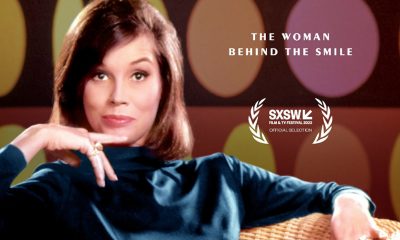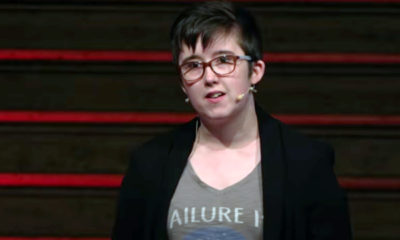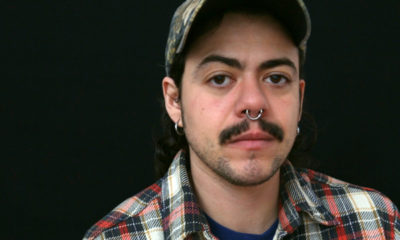Arts & Entertainment
Remembering the queer voices and allies we lost in 2019
Authors, artists and others who changed the world
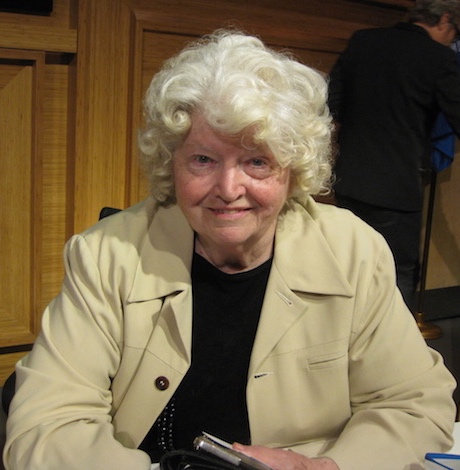
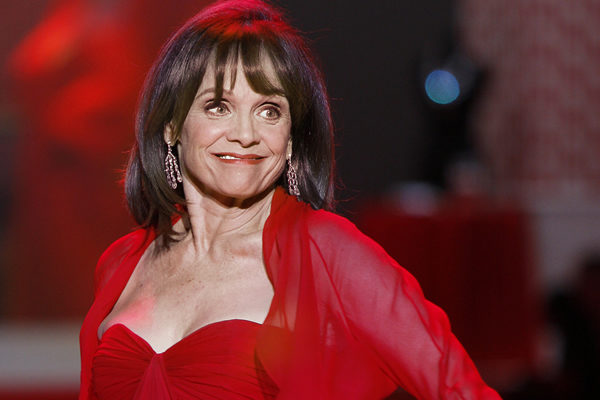
Many acclaimed LGBTQ people and allies died in 2019. They include:
Carol Channing, the legendary Broadway actress, died on Jan. 15 at age 97 in Rancho Mirage, Calif. She was best know for her performances as Lorelei Lee in “Gentlemen Prefer Blondes” and Dolly Gallagher Levi in “Hello Dolly!”
Mary Oliver, a lesbian poet, died on Jan. 17 at her Florida home at age 83. Her collection “American Primitive, won the 1984 Pulitzer Prize.
Harris Wofford, a Democratic senator and civil rights crusader, died on Jan. 21 at age 92. After his wife died, Wofford fell in love with Matthew Charlton. They married in 2018.
Barbra Siperstein, a transgender rights crusader died on Feb. 3 at age 76 from cancer at a New Brunswick, N.J. hospital. A New Jersey law bears her name. It permits people in New Jersey to change their gender on their birth certificates without having to prove they’ve had surgery.
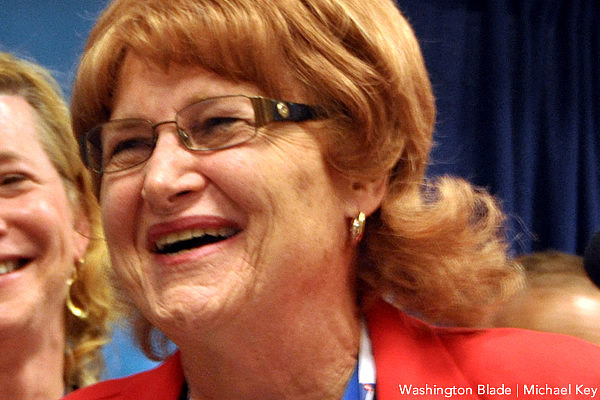
Patricia Nell Warren, author of the 1974 novel “The Front Runner” died on Feb. 9 at age 82 in Santa Monica, Calif. from lung cancer. The iconic book was one of the first to feature an open same-sex male relationship.
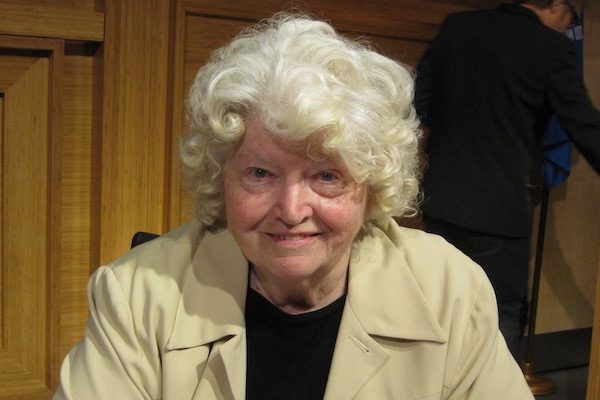
Hilde Zadek, a Vienna State Opera mainstay, died on Feb. 21 at 101 in Karlsruhe, Germany. She debuted in the title role of in Verdi’s “Aida” in 1947. She retired in 1971.
Jackie Shane, a black transgender soul singer who received a 2018 Grammy nomination for best historical album for her album “Any Other Way,” died at age 78 in Nashville. Her body was found at her home on Feb. 21.
Gillian Freeman, the British novelist who wrote the 1961 novel “The Leather Boys” died on Feb. 23 at age 89 in London. The book was one of the first to portray working-class gay characters.
Carrie Ann Lucas, a queer lawyer and disability rights advocate, died on Feb. 24 at age 47 in Loveland, Colo. She championed the rights of disabled parents.
John Richardson, an art historian renowned for his four-volume biography of Pablo Picasso, died at age 95 on March 12 at his Manhattan home.
Barbara Hammer, a lesbian filmmaker, died at age 79 from ovarian cancer at her partner Florrie Burke’s home in Manhattan on March 16. Hammer celebrated lesbian sexuality in “Dyketactics” and other films.
Dr. Richard Green, a psychiatrist, died at age 82 on April 6 at his London home. He was one of the first to critique the idea that being queer is a psychiatric disorder.
Michael Fesco, the nightclub owner who provided open spaces (Ice Palace, Flamingo and other venues) for gay men to dance when LGBTQ people couldn’t be out, died on April 12 at age 84 in Palm Springs, Calif.
Lyra McKee, a 29-year-old, queer Northern Ireland journalist, died on April 18. She was killed while covering violence in Londonderry.
Giuliano Bugialli, a gay culinary historian and three-time James Beard Award winner, died at age 88 on April 26 in Viareggio, Italy.
Doris Day, queer icon, actress and singer best known for her romantic comedies with Rock Hudson, died at age 97 on May 13 at her Carmel Valley, Calif. home from pneumonia.
Binyavanga Wainaina, a Kenyan author, founder of the magazine “Kwani?” and one of the first prominent African writers to come out as gay, died at age 48 on May 21 in a Nairobi hospital.
Charles A. Reich, author of the 1970 counter-culture manifesto “The Greening of America,” died on June 15 at age 91 in San Francisco.
Douglas Crimp, an art critic and AIDS activist, died on July 5 at age 74 at his Manhattan home from multiple myeloma. He wrote many articles for journals. Yet he also attended meetings of the AIDS group ACT UP.
Elka Gilmore, a queer chef known for her fusion cuisine, died at age 59 on July 6 in San Francisco. The New York Times Magazine called her “the enfant terrible of the modern California kitchen.”
George Hodgman, a gay editor, died on July 19 at age 60 at his Manhattan home. The cause was thought to be suicide. Hodgman’s memoir “Bettyville” is his story of staying in Paris, Mo. with his widowed mother who had dementia.
Lee Bennett Hopkins, a gay poet who wrote and edited many books for children, died on Aug. 8 at age 81 in Cape Coral, Fla. In 2018, he edited “World Make Way: New Poems Inspired by Art from The Metropolitan Museum.”
Sally Floyd, one of the inventors of Random Early Detection (RED), a widely used internet algorithm, died at age 69 on Aug. 25 at her Berkeley, Calif. home from cancer. She is survived by her wife Carole Leita.
Valerie Harper, the actress best known as Rhoda Morgenstern on “The Mary Tyler Moore Show,” died on Aug. 30 at age 80 from cancer. Harper was D.C.’s 2009 Capital Pride Parade grand marshal.
Rip Taylor, a gay comedian known as The King of Confetti, died on Oct. 6 at age 88 at Cedars-Sinai Medical Center in Los Angeles.
John Giorno, a gay artist, died on Oct. 11 at his home in Manhattan at age 82. In 1969, he founded Dial-A-Poem, a communications system enabling people to hear Allen Ginsberg and other poets read their poems.
Gillian Jagger, an artist whose work (installations of animal carcasses and tree trunks) wasn’t aligned with any one movement, died on Oct. 21 in Ellenville, N.Y. at age 88. “I felt that nature held the truth I wanted,” she told the U.K’s Public Monuments and Sculpture Association magazine. She is survived by her wife Connie Mander.
Howard Cruse, a gay cartoonist whose comic strip “Wendel” ran in The Advocate for several years, died on Nov. 26 at age 75 in Pittsfield, Mass. from lymphoma. His graphic novel “Stuck Rubber Baby” and other work influenced other queer cartoonists. He is survived by his husband Ed Sedarbaum.
Michael Howard, a gay military historian and decorated combat veteran and pioneer of the “English school” of strategic studies, died on Nov. 30 in Swindon, England at age 97.
Shelley Morrison, who played Rosario on “Will and Grace” from 1999 to 2006, died on Dec. 1 in Los Angeles at age 83 from heart failure.
William Luce, who wrote the acclaimed plays “The Belle of Amherst” about Emily Dickinson and “Barrymore” about John Barrymore, died on Dec. 9 at a memory-care facility in Green Valley, Ariz. at age 88. Ray Lewis, his partner of 50 years, died in 2001.
Out & About
Plan your wedding the LGBTQ way
Washington D.C. LGBTQ+ Wedding Expo scheduled for Sunday

Rainbow Wedding Network will host “Washington D.C. LGBTQ+ Wedding Expo” on Sunday, March 1 at 12:30 p.m.
Guests can meet and mingle with a curated selection of LGBTQ-welcoming wedding professionals from across the region, each ready to help bring your vision to life, and spend a beautiful afternoon exploring everything they need to create a celebration that reflects them.
There will be a relaxed, self-guided look at the Watergate’s spaces and amenities, savor signature cocktails and delicious tasting samples, and connect with other couples who are on the same journey.
Visit Eventbrite to reserve a spot.
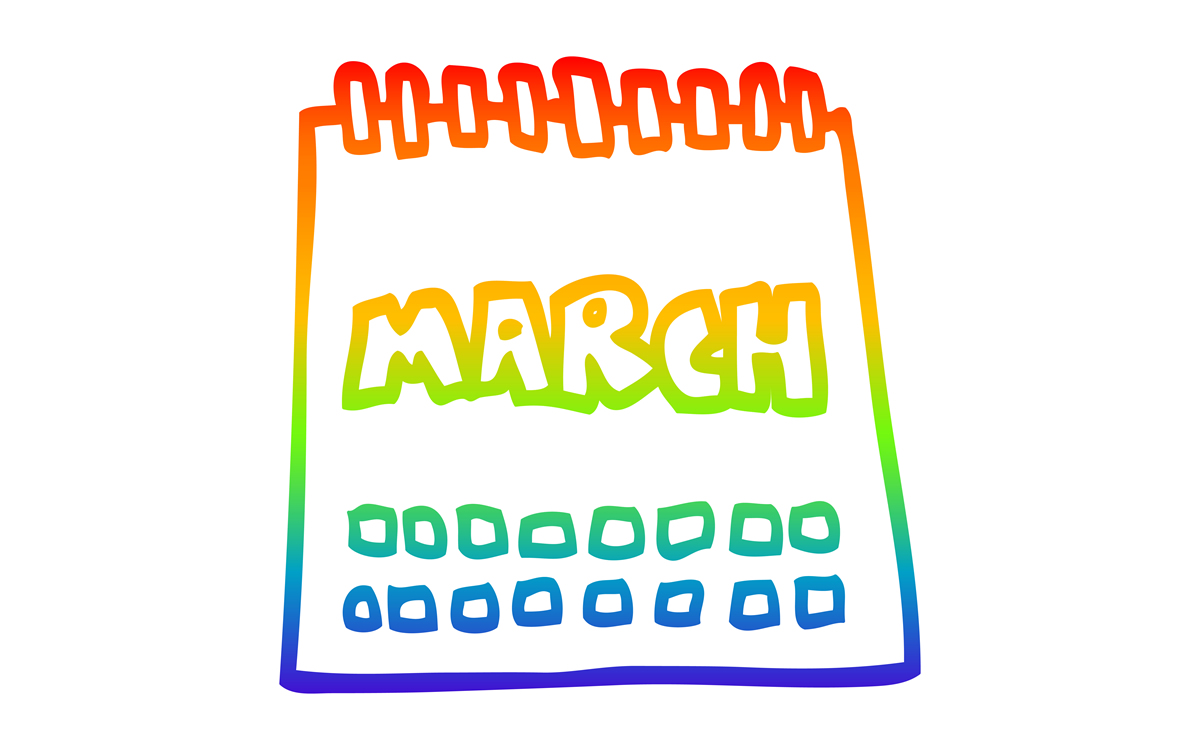
Friday, February 27
Center Aging Monthly Luncheon With Yoga and Drag Bingo will be at 12 p.m. at the DC Center for the LGBT Community. Email Mac at [email protected] if you require ASL interpreter assistance, have any dietary restrictions, or questions about this event.
Go Gay DC will host “LGBTQ+ Community Happy Hour Meetup” at 7 p.m. at Freddie’s Beach Bar and Restaurant. This is a chance to relax, make new friends, and enjoy happy hour specials at this classic retro venue. Attendance is free and more details are available on Eventbrite.
Trans Discussion Group will be at 7 p.m. on Zoom. This group is intended to provide an emotionally and physically safe space for trans people and those who may be questioning their gender identity/expression to join together in community and learn from one another. For more details, email [email protected].
Saturday, February 28
Go Gay DC will host “LGBTQ+ Community Brunch” at 11 a.m. at Freddie’s Beach Bar & Restaurant. This fun weekly event brings the DMV area LGBTQ+ community, including allies, together for delicious food and conversation. Attendance is free and more details are available on Eventbrite.
The DC Center for the LGBT Community will host “Sunday Supper on Saturday” at 2 p.m. It’s more than just an event; it’s an opportunity to step away from the busyness of life and invest in something meaningful, and enjoy delicious food, genuine laughter, and conversations that spark connection and inspiration. For more details, visit the Center’s website.
Black Lesbian Support Group will be at 1 p.m. on Zoom. This is a peer-led support group devoted to the joys and challenges of being a Black lesbian. You do not need to be a member of the Beta Kappa Chapter or the Beta Phi Omega Sorority in order to join, but they do ask that you either identify as a lesbian or are questioning that aspect of your identity.Send an email to [email protected] to receive the zoom link.
Sunday, March 1
LGBTQ+ Community Coffee and Conversation will be at 12 p.m. at As You Are. This event is for people looking to make more friends and meaningful connections in the LGBTQ community. Attendance is free and more details are available on Eventbrite.
Monday, March 2
“Center Aging: Monday Coffee Klatch” will be at 10 a.m. on Zoom. This is a social hour for older LGBTQ+ adults. Guests are encouraged to bring a beverage of choice. For more information, contact Adam ([email protected]).
Tuesday, March 3
Universal Pride Meeting will be at 7 p.m. on Zoom. This group seeks to support, educate, empower, and create change for people with disabilities. For more details, email [email protected].
Wednesday, March 4
Job Club will be at 6 p.m. on Zoom upon request. This is a weekly job support program to help job entrants and seekers, including the long-term unemployed, improve self-confidence, motivation, resilience and productivity for effective job searches and networking — allowing participants to move away from being merely “applicants” toward being “candidates.” For more information, email [email protected] or visit www.thedccenter.org/careers.
Center Aging Women’s Social and Discussion Group will be at 6 p.m. on Zoom. This group is a place where older LGBTQ+ women can meet and socialize with one another. There will be discussion, activities, and a chance for guests to share what they want future events to include. For more information, email [email protected].
Thursday, March 5
The DC Center’s Fresh Produce Program will be held all day at the DC Center for the LGBT Community. People will be informed on Wednesday at 5 p.m. if they are picked to receive a produce box. No proof of residency or income is required. For more information, email [email protected] or call 202-682-2245.
Virtual Yoga Class will be at 7 p.m. on Zoom. This free weekly class is a combination of yoga, breathwork and meditation that allows LGBTQ+ community members to continue their healing journey with somatic and mindfulness practices. For more details, visit the DC Center’s website.
a&e features
Transmission DC breathes new life into a storied sound space
A fresh home for boundary-pushing culture on H Street

Late last year, phoenix-style, a fresh home for boundary-pushing culture arose on the H Street corridor. Transmission DC – a queer, trans, and POC-owned, operated, and centered community-focused venue – powered on in the former home to the Rock & Roll Hotel (famously, not a hotel, but very much rock & roll). Transmission (1353 H St., N.E.) arrives secure in its mandate – or even birthright – to provide a place to celebrate creativity and music through a lens of inclusivity and respect.
Transmission’s team brings experience, but also representation. Owners/partners Kabir Khanna (who is also programming director), Katii B, Ellie McDyre, and Kelli Kerrigan together previously managed 618 productions, a venue in Chinatown, crafting “some of D.C.’s freakiest parties, raves, and mosh pits” they note.
They packed up operations last fall to a space curated specifically for D.C.’s underground music and culture scene, building their efforts in Chinatown to bring in more fans in queer and POC circles.
Transmission, Khanna points out, is built on DIY values. In the music scene, DIY means that promoters and organizers – often disconnected from the mainstream and part of marginalized communities – build shows and programs collaboratively, but independently from institutions, supporting each other as smaller, independent venues close. Here, Transmission aims to ensure that those putting together these underground inclusive shows have a more permanent and stable home, can have access to resources, and can provide more sustainable income to artists. “We’re trying to get more people to support and enjoy the music, and also give artists and organizers within the DIY community more structure and a larger cut,” says Khanna.
Khanna also notes that Transmission operates “under the principles of safety, inclusivity, and respect.” McDyre added that even at venues that claim inclusivity, that statement might not take place in practice. We’re “not just pitting up a rainbow flag,” says McDyre, but as some of the owners are trans and POC, audiences can see themselves reflected at the top.
Much like the DIY nature of the music community, the Transmission owners brought a DIY ethos to turning around their space.
In March 2020 – the height of COVID lockdowns – Rock & Roll Hotel suddenly shuttered, though not due to the pandemic; instead, the venue claimed that decreasing sales and increasing competition led to the closure. For 14 years, it was the central spot for cheap beer and lesser-known and celebrated acts. The space stood vacant for more than five years, until Transmission turned the power back on.
“When we got into the space, it was effectively abandoned for years,” says Khanna. “There was a ton of mold, and paint primer covering all surfaces. It was nearly falling apart.” Khanna noted that many music venues like this one, regardless of how well it was maintained, “get the shit kicked out of it,” given the nature of shows. The team called in mold removal contractors, ripped up most of the floorboards, and started fresh.
Transmission’s first floor is styled as a stripped-down black box: the better to take in the music. “It’s minimal on purpose to act as a canvas for set design and music,” without a specific aesthetic, says Khanna. Moving upstairs, the second floor has been opened up, removing some walls, and now has a larger dance area than the first floor. Beyond the first two performance levels, and a holdover from Rock & Roll Hotel, is the rooftop. Though without a stage, the rooftop space is filled with murals splashed across the walls, with a full bar. Transmission’s current capacity is 496, but the team is looking to grow that number. Transmission will also leverage the full kitchen that Rock & Roll Hotel operated, bringing in Third Hand Kitchen to offer a variety of food, including vegan and vegetarian options.
Khanna pointed out an upcoming show reflective of Transmission’s inclusive ethos: Black Techo Matters on Feb. 27. The event is set to be “a dynamic, collaborative night of underground electronic music celebrating Black History Month.” Khanna says that techno came from Black music origins, and this event will celebrate this genesis with a host of artists, including DJ Stingray 313, Carlos Souffront, and Femanyst.

